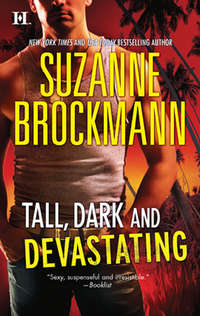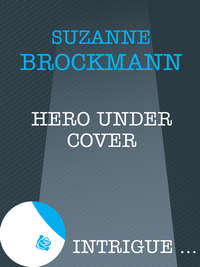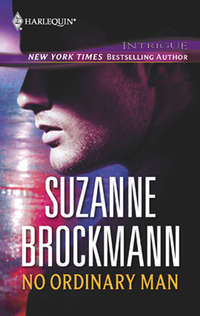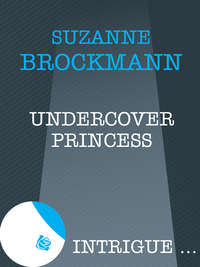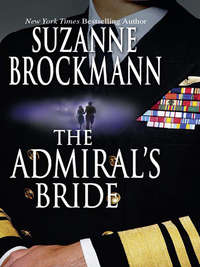
Полная версия
Frisco's Kid
His hair was dark blond and cut short, in an almost boxlike military style. His jaw was square, too, his features rugged and harshly, commandingly handsome. Mia couldn’t see what color his eyes were—only that they were intense, and that he examined her as carefully as she studied him.
He took another step forward, and Mia realized he limped and leaned heavily on a cane.
“Did you want something besides a look at me?’ he asked.
His legs were still in the shadows, but his arms were in the light. And he had tattoos. One on each arm. An anchor on one arm, and something that looked like it might be a mermaid on the other. Mia pulled her gaze back to his face.
“I, um…’ she said. “I just…wanted to say…hi. I’m Mia Summerton. We’re next-door neighbors,” she added lamely. Wow, she sounded like one of her teenage students, tongue-tied and shy.
It was more than his rugged good looks that was making her sound like a space cadet. It was because Lt. Alan Francisco was a career military man. Despite his lack of uniform, he was standing there in front of her, shoulders back, head held high—the Navy version of G.I. Joe. He was a warrior not by draft but by choice. He’d chosen to enlist. He’d chosen to perpetuate everything Mia’s antiwar parents had taught her to believe was wrong.
He was still watching her as closely as she’d looked at him. “You were curious,” he said. His voice was deep and accentless. He didn’t speak particularly loudly, but his words carried up to her quite clearly.
Mia forced a smile. “Of course.”
“Don’t worry,” he said. He didn’t smile back. In fact, he hadn’t smiled once since she’d turned to look over the railing at him. “I’m not loud. I don’t throw wild parties. I won’t disturb you. I’ll stay out of your way and I hope you’ll have the courtesy to do the same.”
He nodded at her, just once, and Mia realized that she’d been dismissed. With a single nod, he’d just dismissed her as if she were one of his enlisted troops.
As Mia watched, the former Navy lieutenant headed toward the stairs. He used his cane, supporting much of his weight with it. And every step he took looked to be filled with pain. Was he honestly going to climb those stairs…?
But of course he was. This condo complex wasn’t equipped with elevators or escalators or anything that would provide second-floor accessibility to the physically challenged. And this man was clearly challenged.
But Lieutenant Francisco pulled himself up, one painful step at a time. He used the cast-iron railing and his upper-body strength to support his bad leg, virtually hopping up the stairs. Still, Mia could tell that each jarring movement caused him no little amount of pain. When he got to the top, he was breathing hard, and there was a sheen of sweat on his face.
Mia spoke from her heart as usual, not stopping to think first. “There’s a condo for sale on the ground floor,” she said. “Maybe the association office can arrange for you to exchange your unit for the…one on the…”
The look he gave her was withering. “You still here?” His voice was rough and his words rude. But as he looked up again, as for one brief moment he glanced into her eyes, Mia could see myriad emotions in his gaze. Anger. Despair. Shame. An incredible amount of shame.
Mia’s heart was in her throat. “I’m sorry,” she said, her gaze dropping almost involuntarily to his injured leg. “I didn’t mean to—”
He moved directly underneath one of the corridor lights, and held up his right leg slightly. “Pretty, huh?” he said.
His knee was a virtual railroad switching track of scars. The joint itself looked swollen and sore. Mia swallowed. “What—” she said, then cleared her throat. “What…happened…?”
His eyes were an odd shade of blue, she realized, gazing up into the swirl of color. They were dark blue, almost black. And they were surrounded by the longest, thickest eyelashes she’d ever seen on a man.
Up close, even despite the shine of perspiration on his face, Mia had to believe that Lt. Alan Francisco was the single most attractive man she had ever seen in her entire twenty-seven years.
His hair was dark blond. Not average, dirty blond, but rather a shiny mixture of light brown with streaks and flashes of gold and even hints of red that gleamed in the light. His nose was big, but not too big for his face, and slightly crooked. His mouth was wide. Mia longed to see him smile. What a smile this man would have, with a generous mouth like that. There were laugh lines at the corners of his mouth and his eyes, but they were taut now with pain and anger.
“I was wounded,” he said brusquely. “During a military op.”
He had been drinking. He was close enough for Mia to smell whiskey on his breath. She moved back a step. “Military…op?”
“Operation,” he said.
“That must have been…awful,” she said. “But…I wasn’t aware that the United States has been involved in any naval battles recently. I mean, someone like, oh, say…the President would let us all know if we were at war, wouldn’t he?”
“I was wounded during a search-and-rescue counterterrorist operation in downtown Baghdad,” Francisco said.
“Isn’t Baghdad a little bit inland for a sailor?”
“I’m a Navy SEAL,” he said. Then his lips twisted into a grim version of a smile. “Was a Navy SEAL,” he corrected himself.
Frisco realized that she didn’t know what he meant. She was looking up at him with puzzlement in her odd-colored eyes. They were a light shade of brown and green—hazel, he thought it was called—with a dark brown ring encircling the edges of her irises. Her eyes had a slightly exotic tilt to them, as if somewhere, perhaps back in her grandparents’ generation, there was Asian or Polynesian blood. Hawaiian. That was it. She looked faintly Hawaiian. Her cheekbones were wide and high, adding to the exotic effect. Her nose was small and delicate, as were her graceful-looking lips. Her skin was smooth and clear and a delicious shade of tan. Her long, straight black hair was up in a ponytail, a light fringe of bangs softening her face. Her hair was so long, that if she wore it down, it would hang all the way to her hips.
His next-door neighbor was strikingly beautiful.
She was nearly an entire twelve inches shorter than he was, with a slender build. She was wearing a loose-fitting T-shirt and a pair of baggy shorts. Her shapely legs were that same light shade of brown and her feet were bare. Her figure was slight, almost boyish. Almost. Her breasts may have been small, but they swelled slightly beneath the cotton of her shirt in a way that was decidedly feminine.
At first glance, from the way she dressed and from her clean, fresh beauty, Frisco had thought she was a kid, a teenager. But up close, he could see faint lines of life on her face, along with a confidence and wisdom that no mere teenager could possibly exude. Despite her youthful appearance, this Mia Summerton was probably closer to his own age.
“Navy SEALs,” he explained, still gazing into her remarkable hazel eyes, “are the U.S. military’s most elite special operations group. We operate on sea, in the air and on land. SEa, Air, Land. SEAL.”
“I get it,” she said, with a smile. “Very cute.”
Her smile was crooked and made her look just a little bit goofy. Surely she knew that her smile marred her perfect beauty, but that didn’t keep her from smiling. In fact, Frisco was willing to bet that, goofy or not, a smile was this woman’s default expression. Still, her smile was uncertain, as if she wasn’t quite sure he deserved to be smiled at. She was ill at ease—whether that was caused by his injury or his imposing height, he didn’t know. She was wary of him, however.
“‘Cute’ isn’t a word used often to describe a special operations unit.”
“Special operations,” Mia repeated. “Is that kind of like the Green Berets or the Commandos?”
“Kind of,” Frisco told her, watching her eyes as he spoke. “Only, smarter and stronger and tougher. SEALs are qualified experts in a number of fields. We’re all sharpshooters, we’re all demolitions experts—both underwater and on land—we can fly or drive or sail any jet or plane or tank or boat. We all have expert status in using the latest military technology.”
“It sounds to me as if you’re an expert at making war.” Mia’s goofy smile had faded, taking with it much of the warmth in her eyes. “A professional soldier.”
Frisco nodded. “Yeah, that’s right.” She didn’t like soldiers. That was her deal. It was funny. Some women went for military men in a very major way. At the same time, others went out of their way to keep their distance. This Mia Summerton clearly fell into the second category.
“What do you do when there’s no war to fight? Start one of your own?”
Her words were purposely antagonistic, and Frisco felt himself bristle. He didn’t have to defend himself or his former profession to this girl, no matter how pretty she was. He’d run into plenty of her type before. It was politically correct these days to be a pacifist, to support demilitarization, to support limiting funds for defense—without knowing the least little thing about the current world situation.
Not that Frisco had anything against pacifists. He truly believed in the power of negotiation and peace talks. But he followed the old adage: walk softly and carry a big stick. And the Navy SEALs were the biggest, toughest stick America could hope to carry.
And as for war, they were currently fighting a great big one—an ongoing war against terrorism.
“I don’t need your crap.” Frisco turned away as he used his cane to limp toward the door of his condo.
“Oh, my opinion is crap?” She moved in front of him, blocking his way. Her eyes flashed with green fire.
“What I do need is another drink,” Frisco announced. “Badly. So if you don’t mind moving out of my way…?”
Mia crossed her arms and didn’t budge. “I’m sorry,” she said. “I confess that my question may have sounded a bit hostile, but I don’t believe that it was crap.”
Frisco gazed at her steadily. “I’m not in the mood for an argument,” he said. “You want to come in and have a drink—please. Be my guest. I’ll even find an extra glass. You want to spend the night—even better. It’s been a long time since I’ve shared my bed. But I have no intention of standing here arguing with you.”
Mia flushed, but her gaze didn’t drop. She didn’t look away. “Intimidation is a powerful weapon, isn’t it?” she said. “But I know what you’re doing, so it won’t work. I’m not intimidated, Lieutenant.”
He stepped forward, moving well into her personal space, backing her up against the closed door. “How about now?” he asked. “Now are you intimidated?”
She wasn’t. He could see it in her eyes. She was angrier, though.
“How typical,” she said. “When psychological attack doesn’t work, resort to the threat of physical violence.” She smiled at him sweetly. “I’m calling your bluff, G.I. Joe. What are you going to do now?”
Frisco gazed down into Mia’s oval-shaped face, out of ideas, although he’d never admit that to her. She was supposed to have turned and run away by now. But she hadn’t. Instead, she was still here, glaring up at him, her nose mere inches from his own.
She smelled amazingly good. She was wearing perfume—something light and delicate, with the faintest hint of exotic spices.
Something had stirred within him when she’d first given him one of her funny smiles. It stirred again and he recognized the sensation. Desire. Man, it had been a long time….
“What if I’m not bluffing?” Frisco said, his voice no more than a whisper. He was standing close enough for his breath to move several wisps of her hair. “What if I really do want you to come inside? Spend the night?”
He saw a flash of uncertainty in her eyes. And then she stepped out of his way, moving deftly around his cane. “Sorry, I’m not in the mood for casual sex with a jerk,” she retorted.
Frisco unlocked his door. He should have kissed her. She’d damn near dared him to. But it had seemed wrong. Kissing her would have been going too far. But, Lord, he’d wanted to….
He turned to look back at her before he went inside. “If you change your mind, just let me know.”
Mia laughed and disappeared into her own apartment.
CHAPTER 3
“Yeah?” Frisco rasped into the telephone. His mouth was dry and his head was pounding as if he’d been hit by a sledgehammer. His alarm clock read 9:36, and there was sunlight streaming in underneath the bedroom curtains. It was bright, cutting like a laser beam into his brain. He closed his eyes.
“Alan, is that you?”
Sharon. It was his sister, Sharon.
Frisco rolled over, searching for something, anything with which to wet his impossibly dry mouth. There was a whiskey bottle on the bedside table with about a half an inch of amber liquid still inside. He reached for it, but stopped. No way was he going to take a slug of that. Hell, that was what his old man used to do. He’d start the day off with a shot—and end it sprawled, drunk, on the living room couch.
“I need your help,” Sharon said. “I need a favor. The VA hospital said you were released and I just couldn’t believe how lucky my timing was.”
“How big a favor?” Frisco mumbled. She was asking for money. It wasn’t the first time, and it wouldn’t be the last. His older sister Sharon was as big a drunk as their father had been. She couldn’t hold a job, couldn’t pay her rent, couldn’t support her five-year-old daughter, Natasha.
Frisco shook his head. He’d been there when Tasha was born, brought into the world, the offspring of an unknown father and an irresponsible mother. As much as Frisco loved his sister, he knew damn well that Sharon was irresponsible. She floated through life, drifting from job to job, from town to town, from man to man. Having a baby daughter hadn’t rooted Sharon in any one place.
Five years ago, back when Natasha was born, back before his leg had damn near been blown off, Frisco had been an optimist. But even he hadn’t been able to imagine much happiness in the baby’s future. Unless Sharon owned up to the fact that she had a drinking problem, unless she got help, sought counseling and finally settled down, he’d known that little Natasha’s life would be filled with chaos and disruption and endless change.
He’d been right about that.
For the past five years, Frisco had sent his sister money every month, hoping to hell that she used it to pay her rent, hoping Natasha had a roof over her head and food to fill her stomach.
Sharon had visited him only occasionally while he was in the VA hospital. She only came when she needed money, and she never brought Natasha with her—the one person in the world Frisco would truly have wanted to see.
“This one’s a major favor,” Sharon said. Her voice broke. “Look, I’m a couple of blocks away. I’m gonna come over, okay? Meet me in the courtyard in about three minutes. I broke my foot, and I’m on crutches. I can’t handle the stairs.”
She hung up before giving Frisco a chance to answer. Sharon broke her foot. Perfect. Why was it that people with hard luck just kept getting more and more of the same? Frisco rolled over, dropped the receiver back onto the phone, grabbed his cane and staggered into the bathroom.
Three minutes. It wasn’t enough time to shower, but man, he needed a shower badly. Frisco turned on the cold water in the bathroom sink and then put his head under the faucet, both drinking and letting the water flow over his face.
Damn, he hadn’t meant to kill that entire bottle of whiskey last night. During the more than five years he’d been in and out of the hospital and housed in rehabilitation centers, he’d never had more than an occasional drink or two. Even before his injury, he was careful not to drink too much. Some of the guys went out at night and slammed home quantities of beer and whiskey—enough to float a ship. But Frisco rarely did. He didn’t want to be like his father and his sister, and he knew enough about it to know that alcoholism could be hereditary.
And last night? He’d meant to have one more drink. That was all. Just one more to round down the edges. One more to soften the harsh slap of his release from the therapy center. But one drink had turned into two.
Then he’d started thinking about Mia Summerton, separated from him by only one very thin wall, and two had become three. He could hear the sound of her stereo. She was listening to Bonnie Raitt. Every so often, Mia would sing along, her voice a clear soprano over Bonnie’s smoky alto. And after three drinks, Frisco had lost count.
He kept hearing Mia’s laughter, echoing in his head, the way she’d laughed at him right before she’d gone into her own condo. It had been laughter loaded with meaning. It had been “a cold day in hell” kind of laughter, as in, it would be a cold day in hell before she’d even deign to so much as think about him again.
That was good. That was exactly what he wanted. Wasn’t it?
Yes. Frisco splashed more water on his face, trying to convince himself that that was true. He didn’t want some neighbor lady hanging around, giving him those goddamned pitying looks as he hobbled up and down the stairs. He didn’t need suggestions about moving to a lousy ground-floor condo as if he were some kind of cripple. He didn’t need self-righteous soapbox speeches about how war is not healthy for children and other living things. If anyone should know that, he sure as hell should.
He’d been in places where bombs were falling. And, yes, the bombs had military targets. But that didn’t mean if a bomb accidentally went off track, it would fail to explode. Even if it hit a house or a church or a school, it was gonna go off. Bombs had no conscience, no remorse. They fell. They exploded. They destroyed and killed. And no matter how hard the people who aimed those bombs tried, civilians ended up dead.
But if a team of SEALs was sent in before air strikes became necessary, those SEALs could conceivably achieve more with fewer casualties. A seven-man team of SEALs such as the Alpha Squad could go in and totally foul up the enemy’s communication system. Or they could kidnap the enemy’s military leader, ensuring chaos and possibly reopening negotiations and peace talks.
But more often than not, because the top brass failed to realize the SEALs’ full potential, they weren’t utilized until it was too late.
And then people died. Children died.
Frisco brushed his teeth, then drank more water. He dried his face and limped back into his bedroom. He searched for his sunglasses to no avail, uncovered his checkbook, pulled on a clean T-shirt and, wincing at the bright sunlight, he headed outside.
* * *
The woman in the courtyard burst into tears.
Startled, Mia looked up from her garden. She’d seen this woman walk in—a battered, worn-out-looking blonde on crutches, awkwardly carrying a suitcase, followed by a very little, very frightened red-haired girl.
Mia followed the weeping woman’s gaze and saw Lieutenant Francisco painfully making his way down the stairs. Wow, he looked awful. His skin had a grayish cast, and he was squinting as if the brilliant blue California sky and bright sunshine were the devil’s evil doing. He hadn’t shaved, and the stubble on his face made him look as if he’d just been rolled from a park bench. His T-shirt looked clean, but his shorts were the same ones he’d had on last night. Clearly he’d slept in them.
He’d obviously had “another” drink last night, and quite probably more than that afterward.
Fabulous. Mia forced her attention back to the flowers she was weeding. She had been convinced beyond a shadow of a doubt that Lt. Alan Francisco was not the kind of man she even wanted to have for a friend. He was rude and unhappy and quite possibly dangerous. And now she knew that he drank way too much, too.
No, she was going to ignore condo 2C from now on. She would pretend that the owner was still out of town.
The blond woman dropped her crutches and wrapped her arms around Francisco’s neck. “I’m sorry,” she kept saying, “I’m sorry.”
The SEAL led the blonde to the bench directly across from Mia’s garden plot. His voice carried clearly across the courtyard—she couldn’t help but overhear, even though she tried desperately to mind her own business.
“Start at the beginning,” he said, holding the woman’s hands. “Sharon, tell me what happened. From the beginning.”
“I totaled my car,” the blonde—Sharon—said, and began to cry again.
“When?” Francisco asked patiently.
“Day before yesterday.”
“That was when you broke your foot?”
She nodded. Yes.
“Was anyone else hurt?”
Her voice shook. “The other driver is still in the hospital. If he dies, I’ll be up on charges of vehicular manslaughter.”
Francisco swore. “Shar, if he dies, he’ll be dead. That’s a little bit worse than where you’ll be, don’t you think?”
Blond head bowed, Sharon nodded.
“You were DUI.” It wasn’t a question, but she nodded again. DUI—driving under the influence. Driving drunk.
A shadow fell across her flowers, and Mia looked up to see the little red-haired girl standing beside her.
“Hi,” Mia said.
The girl was around five. Kindergarten age. She had amazing strawberry blond hair that curled in a wild mass around her round face. Her face was covered with freckles, and her eyes were the same pure shade of dark blue as Alan Francisco’s.
This had to be his daughter. Mia’s gaze traveled back to the blonde. That meant Sharon was his…wife? Ex-wife? Girlfriend?
It didn’t matter. What did she care if Alan Francisco had a dozen wives?
The red-haired girl spoke. “I have a garden at home. Back in the old country.”
“Which old country is that?” Mia asked with a smile. Kindergarten-age children were so wonderful.
“Russia,” the little girl said, all seriousness. “My real father is a Russian prince.”
Her real father, hmm? Mia couldn’t blame the little girl for making up a fictional family. With a mother up on DUI charges, and a father who was only a step or two behind…Mia could see the benefits of having a pretend world to escape to, filled with palaces and princes and beautiful gardens.
“Do you want to help me weed?” Mia asked.
The little girl glanced over at her mother.
“The bottom line is that I have no more options,” Sharon was tearfully telling Alan Francisco. “If I voluntarily enter the detox program, I’ll win points with the judge who tries my case. But I need to find someplace for Natasha to stay.”
“No way,” the Navy lieutenant said, shaking his head. “I’m sorry. There’s no way in hell I can take her.”
“Alan, please, you’ve got to help me out here!”
His voice got louder. “What do I know about taking care of a kid?”
“She’s quiet,” Sharon pleaded. “She won’t get in the way.”
“I don’t want her.” Francisco had lowered his voice, but it still carried clearly over to Mia. And to the little girl—to Natasha.
Mia’s heart broke for the child. What an awful thing to overhear: Her own father didn’t want her.
“I’m a teacher,” Mia said to the girl, hoping she wouldn’t hear the rest of her parents’ tense conversation. “I teach older children—high school kids.”
Natasha nodded, her face a picture of concentration as she imitated Mia and gently pulled weeds from the soft earth of the garden.
“I’m supposed to go into detox in an hour,” Sharon said. “If you don’t take her, she’ll be a ward of the state—she’ll be put into foster care, Alan.”
“There’s a man who works for my father the prince,” Natasha told Mia, as if she, too, were trying desperately not to listen to the other conversation, “who only plants flowers. That’s all he does all day. Red flowers like these. And yellow flowers.”
On the other side of the courtyard, Mia could hear Alan Francisco cursing. His voice was low, and she couldn’t quite make out the words, but it was clear he was calling upon his full sailor’s salty vocabulary. He wasn’t angry at Sharon—his words weren’t directed at her, but rather at the cloudless California sky above them.


